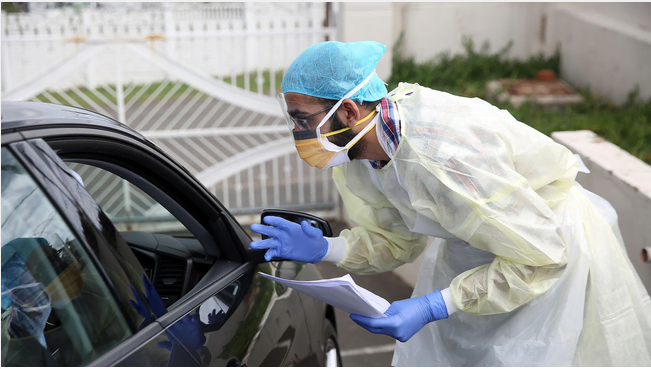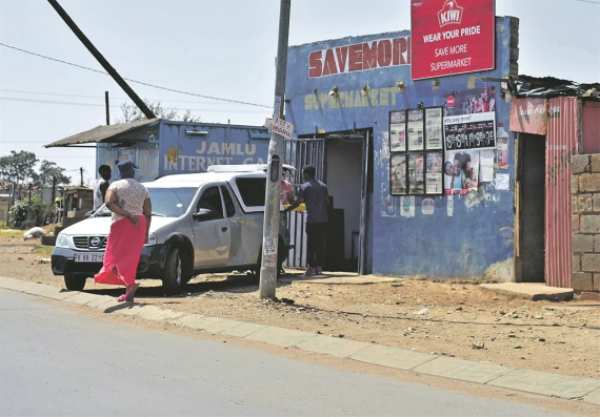Picture: Motswari Mofokeng/African News Agency(ANA)
South Africa might have seen a dramatic drop in infections over the last two months, but the fear now is, will the country be hit by a devastating second wave or resurgence.
As South Africans once again enjoy overseas travel and more freedom, in Europe a second wave of the Covid-19 virus is wreaking havoc as infection rates rise and renewed lockdowns loom.
But research suggests that a local surge is coming and will be with us early next year. Then it will return the same time, every year.
A new study released by Wits university suggests that the Covid 19 virus might start following a seasonal cycle just like the flu.
“In South Africa we are over our first peak, now the big question is will we get a second peak and if so, when will it happen,” said Professor Bob Scholes of Wits’s Global Change Institute, who worked on the research. “And our work suggests that a second peak is likely in South Africa as we've seen elsewhere in the world.”
Researchers from Wits’s Global Change Institute and the school of Geography, Archaeology and Environmental Studies studied other similar diseases to Covid 19, like influenza. They concluded that the Covid 19 virus will after the initial outbreak slip into a seasonal cycle.
“It tends to be greater in the winter months and less in the summer months,” explained Scholes, who added that there are different theories as to why the Covid-19 virus doesn’t like the summer months.
“It doesn't like high humidities, it falls out of the air basically, and it doesn't like high temperatures either, because it's just got a flimsy little membrane,” he said. Also aiding the virus’s spread in autumn or winter is human social behaviour where people spend more time indoors and in closer proximity to each other.
Professor Shabir Madhi, the executive director of the vaccines and infectious diseases analytics research unit at Wits , believes that if South Africa does experience a surge in infections it would likely occur next year probably in March, when temperatures start to get cooler. What would drive this resurgence, he believes will be South Africans not following non pharmaceutical measures such as social distancing and wearing masks.
“As people become more complacent, in the terms of non pharmaceutical interventions,we will probably see an increase in terms of transmission of the virus. That is most likely going to cause the resurgence in South Africa, it is not going to be driven by foreigners coming into the country,” said Madhi.
Professor Alex Welte, of the DST/NRF Centre of Excellence in Epidemiological Modelling and Analysis at Stellenbosch University,. suspects that South Africa might have a soft resurgence of the Covid 19 virus when compared to what is currently happening in Europe.
“I am leaning towards thinking that we are going to have a longer lull than Europe, and the real sucker part is what is going on with immunity,” Welte explained.
Serology testing done in parts of Gauteng and the Western Cape is suggesting that perhaps 35-45% of South Africans have been exposed to the virus, and were either asymptomatic or experienced mild symptoms of the disease.
“So we probably do have a bit more background immunity than a lot of these European countries,” added Welte.
It is still a mystery as to why so many South Africans might have developed immunity for the disease. One theory is that they might have come into contact with other corona viruses that cause the common cold.
This theory was bolstered earlier this week when research authored by disease experts at the University of Rochester Medical Center, in the US found that colds may provide some protection from covid-19.
They found that memory B cells, which are immune cells that detect pathogens and survive for decades, recognised the Covid 19 virus, if they in the past had attacked cold causing coronaviruses.
The research also suggests that immunity to Covid 19 could last a long time, even a lifetime.
"When we looked at blood samples from people who were recovering from COVID-19, it looked like many of them had a pre-existing pool of memory B cells that could recognize SARS-CoV-2 and rapidly produce antibodies that could attack it," said lead author in the study Professor Mark Sangster, at the University of Rochester Medical Center, in a statement.
The possibility of long term immunity to Covid 19 is good news in the development of a vaccine and preventing the spread of the disease.
But in the months to come, local scientists are hoping to find out more about just how much immunity South Africans have to the virus through additional serology testing. And this will ultimately help predict if South Africa will see that second surge.
Article Source:





